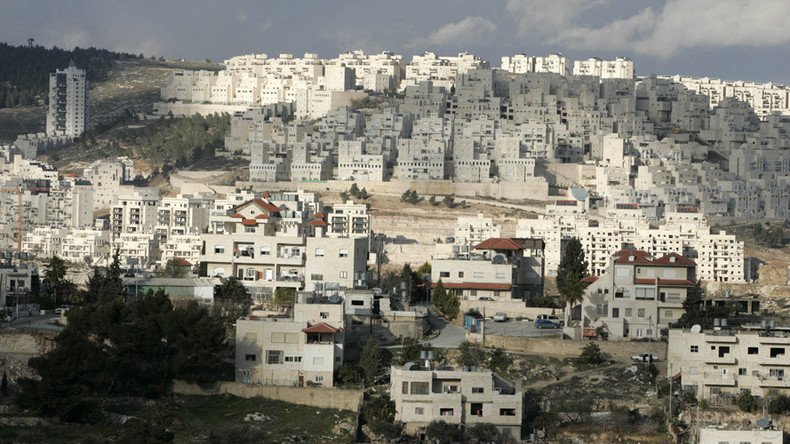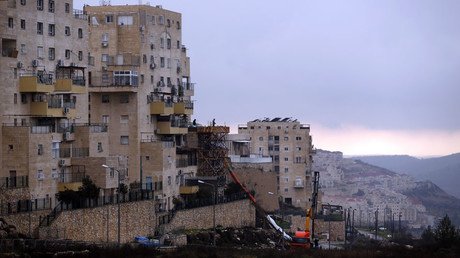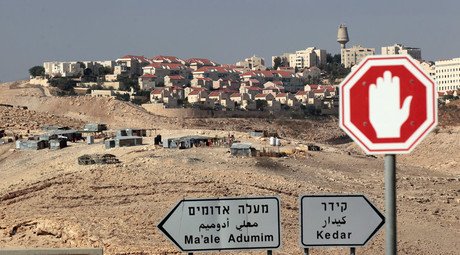US finds Israel’s retroactive approval of illegal settlements ‘particularly troubling’

Washington has criticized Israel’s announced settlement expansion in the occupied territories, once again stressing that increased construction activity jeopardizes the two-state solution between the Palestinians and the Israelis.
The Civil Administration's High Planning Committee on Wednesday went on to approve the development of 234 housing units for the elderly in Elkana Jewish settlement, south of Nablus city. In addition, Israel also approved the erection of 21 units in Givat Ze'ev, in East Jerusalem and 31 housing units in Beit Arie, central West Bank.
Furthermore, the committee retroactively approved 179 housing units in Beit Arie which have already been built without permits.
The Jewish settlements which have been expanding following the Six-Day War of 1967, are illegal under international law. Earlier this week, the UN went on to express concern about the increase in housing projects carried out by Israel in the occupied lands over the last couple of months.
On Monday, UN Special Coordinator for the Middle East Peace Process, Nickolay Mladenov, reminded the Security Council that Israeli settlements in occupied territory have “no legal validity and are an obstruction to achieving a comprehensive, just and lasting peace in the Middle East.”
The diplomat noted that since July, Israel approved plans for over 1,000 housing units in East Jerusalem, in Pisgat Ze’ev, Ramot, Har Homa, and Gilo, as well as 735 units in Ma’ale Adumim and other settlements in the West Bank.
The envoy also stressed that Israel ignored a report issued in July by the Middle East peace "Quartet" (Russia, US, UN, and EU) which called on Israel to “cease the policy of settlement construction and expansion.” Currently at least 570,000 Israelis live in settlements.
In his briefing to the #UN#SecurityCouncil on Situation in the #MiddleEast - @nmladenov#Israel#Palestinepic.twitter.com/WjsexxAirm
— UNSCO (@UNSCO_MEPP) August 29, 2016
On Wednesday the US State Department also expressed concern over the pace of construction. According to Washington’s count, so far this year Israel has promoted plans for the construction of over 2,500 units which include over 700 units that were retroactively approved after being erected in the West Bank.
“We are particularly troubled by the policy of retroactively approving unauthorized settlement units and outposts that are themselves illegal under Israeli law,” US State Department spokesman John Kirby said at a news briefing. “These policies have effectively given the Israeli government a green light for the pervasive advancement of settlement activity in a new and potentially unlimited way.”
The White House also picked up on the news, calling the “significant expansion” of the settlements “a serious and growing threat to the viability of a two state solution.”
“We are particularly troubled by the policy of retroactively approving illegal outposts and unauthorized settlements,” President Barack Obama's spokesman Josh Earnest said, reiterating Kirby’s words.
Ahead of the decision, Peace Now also went on to criticize Israel’s expansionist policies as means to stall the Israeli-Palestinian peace process.
“Not only that the Netanyahu government does not believe in a two states solution, it is actively trying to kill it by building more and more in the settlements,” a spokesperson with Peace Now said in a statement. “This policy contradicts the very essential interests of the state of Israel.”
The Israeli-Palestinian peace talks brokered by the US collapsed in 2014. There are no signs that they will resume anytime soon, despite France's push to bring the conflicting parties to an agreement.














